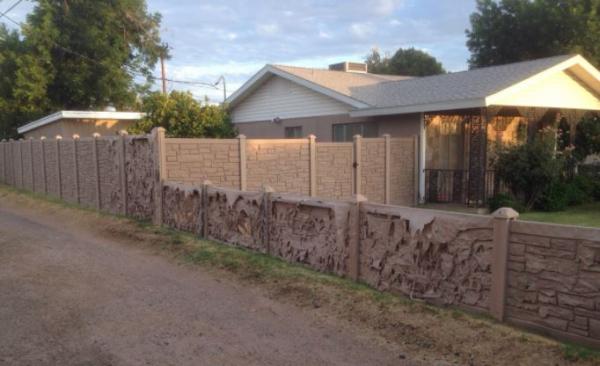
Pictured above: Property damage due to a Phoenix, AZ heatwave.
Insurance is a risky business. Literally. Insurance is the business of spreading risk among large groups of people so that the cost of paying out a claim is shared by everyone who has insurance. In order to calculate these risks companies develop risk management models – tools that show insurers the likelihood of certain catastrophe occurring. The mathematical models for calculating risk are complex and include many factors, but there is one risk that companies have been trying to account for in recent years: climate change. When thinking about the risks insurance protects you against climate change is usually far removed from insurance in the mind of the client. However, it is closer to home than many know and the effects of climate change may be showing sooner than we realize.
Although we may not see the immediate effects in our local community, global warming has already been proven to have a direct effect on the insurance industry. A 2007 report by the Natural Resource Defense Council (NRDC) shows that rising temperatures, more intense precipitation, melting ice caps, and rising sea levels, as products of global warming and thus climate change, have already wreaked havoc in parts of the U.S affecting many lines of insurance such as property liability, flood, crop, business interruption, vehicle, health, and life. In 1995 seven-hundred people died in a five day Chicago heat wave at which the temperature was 104 degrees Fahrenheit. What makes this worse is that, according to the Intergovernmental Panel on Climate Change, the global average temperature is projected to rise by 4 to 11 degrees Fahrenheit if our reliance on fossil fuels accelerates. Hitting closer to home, when the 2008 Columbus, Indiana flood occurred many people did not have flood insurance because 1) they were not aware they lived on a flood plain and 2) the risk of a flood occurring was not properly evaluated because past risk management models have looked at catastrophe retrospectively instead of accounting for variables that could create natural disasters In the future. That is to say, the frequency at which natural disasters occur may be due to climate change which means that past models will no longer suffice in predicting future catastrophe.
If we are not diligent as businesses and individuals to reduce the effects of climate change then matters, from environmental to insurance and everything in between, will only get worse. In a September 2014 article released by the Insurance Information Institute, Karen Clark, president of the hurricane modeling consulting firm Karen Clark & Co, is cited as saying
“global warming could lead to a two to five percent increase in hurricane peak wind speeds over the next 20 years, which in turn could result in a 30 to 40 percent increase in property insurance losses.”
Her statement further coincides with data reported by the NDRC which states “…since the 1970s the number of storms intensifying to category 4 or 5 hurricanes has almost doubled.” If you do not live in a coastal area you may feel that this information does not apply to you, but it does have the potential to impact your life decisions. These may be decisions like buying beach-front property where hurricane and hurricane damages are more likely to occur or the decision to move to a hotter climate area with the increased chances of heatwaves, droughts, wildfires, and other heat-related property damages.
Although studies have shown global warming’s direct effect on the insurance industry, there are companies out there working to mitigate its effects. The effects of climate change, past, present, and future, have prompted insurance companies to develop new insurance programs and revise old ones with incentives for policy holders to go green. Those with a commitment to environmental friendliness may now receive green initiative discounts on their home and auto policies. These may include discounts for those who drive eco-friendly vehicles and for those who use sustainable building practices as outlined by various U.S. environmental agencies. Businesses may also receive discounts on their commercial property policies for using green systems and materials – like energy efficient lighting, water conserving plumbing, etc. – as well as for controlling their emissions and waste.
The effects of climate change are ever-present and steadily growing. Regardless of whether you live in a hot climate, in a coastal region, or nowhere near either global warming affects many facets of all of our lives, whether it is explicitly evident or not. But do not be fooled into thinking that the time is too late to change the climate for the better. It takes one person to begin a movement, and we are already seeing steps from individuals and companies toward more eco-friendly lifestyles. The best you can do is educate yourself about climate change and how it affects you and your community. For more information on taking steps against global warming click here.
